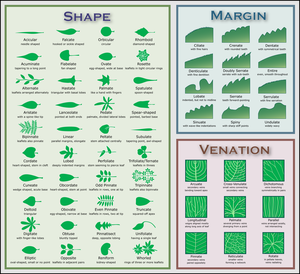Vancouver Flower Clock Project
The Vancouver Flower Clock Project (VFCP) was initiated in October 2008 by ProximityArts, a non-profit interdisciplinary arts collective based out of Vancouver, British Columbia, Canada. The project is based on a garden plan hypothesized by Carolus Linnaeus in his Philosophia Botanica(1751) that would take advatage of certain species of flowers that open their blooms at set times of day to accurately predict the time, in what he described as an horologium florae (floral clock).
As a collaborative naturalist's journal, The VFCP aims to create a collection of information that would aid particpants in the design and maintenance of a flower clock that is unique to the growing conditions and latitude of the Vancouver region and would also reflect the unique cultures of the region and their history with these plants. The project stresses the importance of regional botany, information sharing and the interweaving of aesthetic and scientific observation.

How to Participate
[edit | edit source]If you live outside of the Greater Vancouver Regional District you can use this page as a template and start a similar project in your region. If you live in the GVRD, there are a number of ways you can help develop this project.
If you are new to wiki take the |The original Tour for Newcomers
Add to the list of species
[edit | edit source]In Philosophia Botanica, Linnaeus described three groups of flowers:
- Meteorici - flowers which change their opening and closing times according to the weather conditions.
- Tropici - flowers which change their times for opening and closing according to the length of the day.
- Aequinoctales - flowers which have fixed times for opening and closing.
Only Aequinoctales are suitable for use in a flower clock. If you are aware of any species with this trait, please add it to the Species List below using this template:
|[[Image:image name here|left|80px|]]
|''Botanical Name''
| Common Name
| [[/Plant name/]]
|-
Add to the Species Journal
[edit | edit source]Take a walk. Watch the flowers grow. You can use these journals to log a bloom sighting, and post information about each species. You can include measurements, stories, pictures, recipes as well as indicate whether a bloom was open or closed at a specific time.
For a new species journal, copy and paste Journal Template onto a new page with the format "plant name"
News and Events
[edit | edit source]PROJECT LAUNCH TEA PARTY
Sunday JUNE 21, 2009
1:00 to 4:00 pm
Blim
197 17th Ave. E
Vancouver
By Donation
Drop by for a wiki tutorial, a flower tour of the Mount Pleasant neighbourhood and to learn more about the project.
Bring your laptops, digital cameras or a pencil and paper.
Free cucumber sandwiches and homemade lemonade!
Resources
[edit | edit source]


Project Background Info
[edit | edit source]Plant Identification
[edit | edit source]Climate and Local Growing Conditions
[edit | edit source]Vancouver's hardiness zone ranges from 6b-7b depending on altitude and proximity to the coast.[1]
Assignments
[edit | edit source]Participants
[edit | edit source]
Species List
[edit | edit source]Use Journal Template when adding a new journal.
Aequinoctales
[edit | edit source]The current list is based on Linneaus observations in Philosophica Botanica. [2]
Local Additions
[edit | edit source]Include Species not indicated above. Use Journal Template when adding new species.
| Image | Botanical name | Common name | Journal |
|---|---|---|---|
 |
wikispecies:Ipomoea alba | Moon Flower | Moon Flower |
 |
Evening primrose | Evening Primrose | |
 |
Mycelis muralis | Wall Lettuce | Wall Lettuce |
 |
wikispecies: Echinopsis pachanoi | San Pedro Cactus | San Pedro Cactus |
 |
Hypochaeris radicata | Rough Cat's Ear, Hairy Cats Ear | Hairy Cat's Ear |
 |
Lapsana communis | Nipplewort | Nipplewort |
 |
Mycelis muralis | Wall Lettuce | Wall Lettuce 2 |

























